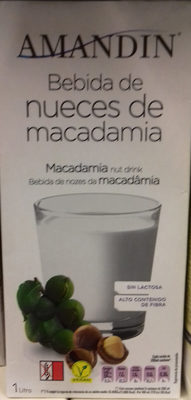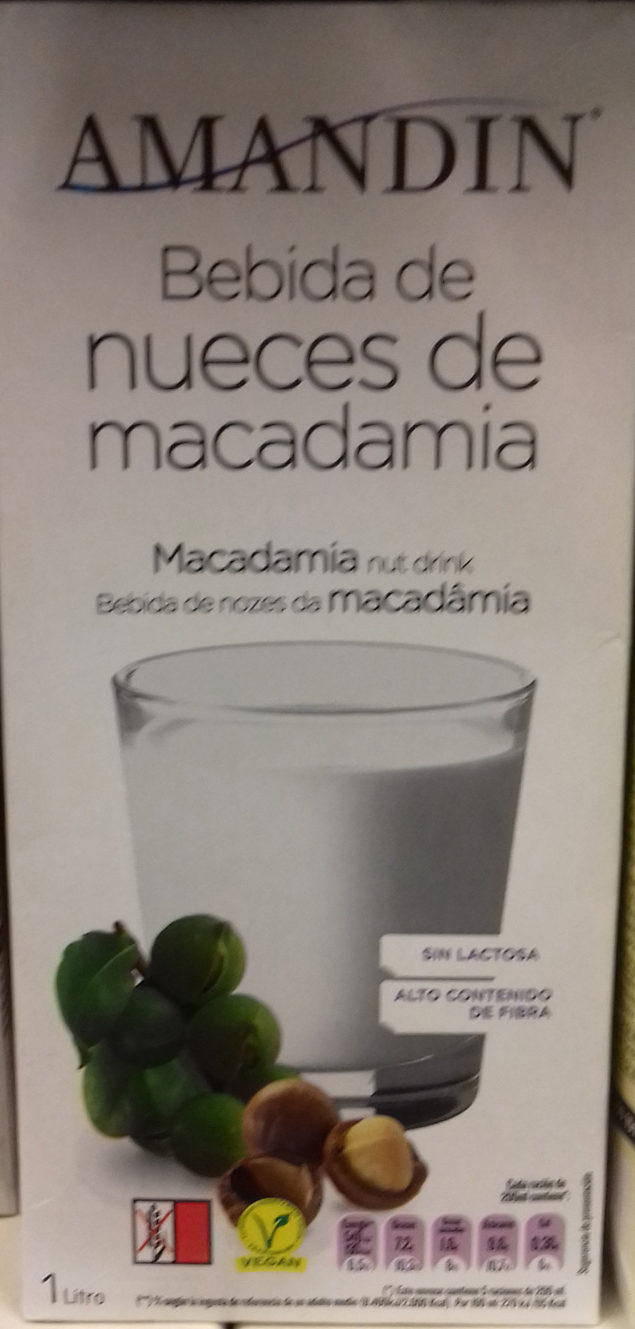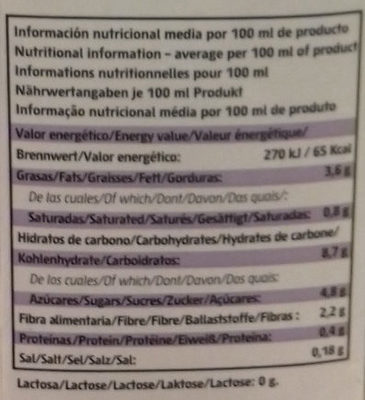Bebida de nueces de macadamia - Amandín - 1 l
This product page is not complete. You can help to complete it by editing it and adding more data from the photos we have, or by taking more photos using the app for Android or iPhone/iPad. Thank you!
×
Barcode: 8410509000067 (EAN / EAN-13)
Common name: Bebida de nueces de macadamia
Quantity: 1 l
Packaging: Tetra Brik
Brands: Amandín
Categories: Plant-based foods and beverages, Beverages, Plant-based foods, Dairy substitutes, Milk substitutes, Nuts and their products, Plant-based beverages, Plant-based milk alternatives, Nut-based drinks, Macadamia nut-based drinks
Labels, certifications, awards:
No gluten, Vegetarian, Source of fibre, Vegan, European Vegetarian Union, European Vegetarian Union Vegan, FSC, FSC Mix, Green Dot, High fibres, No lactose, The Vegan Society




Stores: Hipercor, El Corte Inglés
Matching with your preferences
Environment
Carbon footprint
Packaging
Transportation
Report a problem
Data sources
Product added on by neptuno
Last edit of product page on by fabi2.
Product page also edited by kiliweb, openfoodfacts-contributors, roboto-app, thaialagata, yogoff, yuka.V29rbExLQUFpdkk2bk04R3BCTDIyTXhubDgrQUIwVzRkOVlESWc9PQ.









